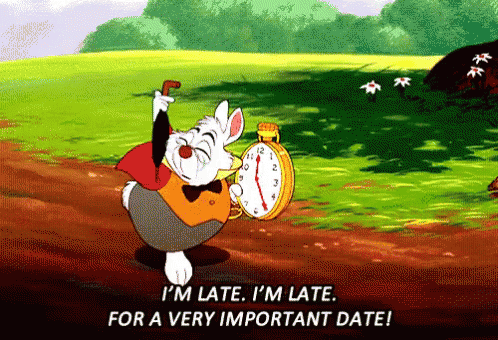What with friends in shows, and participating in New Play Exchange Script Challenges and prepping for #EndofPlay next month I've had scripts and theatre-making on the brain.
I've also been thinking Other Theatre Artist Thoughts.
Those who know me really well know that I'm not only a playwright, but also a director. Sadly, I haven't doing much directing lately, but that doesn't mean I don't think about it a lot.
And I keep having this same Thought.
Just as there are "Acting Styles" for every play an Artist participates in, there are also "Directing Styles" for every play an Artist participates in.
Yes, I know I'm not the first person to make this discovery; but I really wish that this was discussed more in the training of a Theatre Artist.
(Although, maybe it was only my experience which was slightly lacking and that's all my own fault. Which I am prepared to wholeheartedly own. If not, I'm overthinking, so whatever.)
So.
Here's my Opinion on Directing(which is fully acknowledged as biased and complete with an anecdote from my life. Because of course it is.)
You can't direct Shakespeare the same way you would direct Qui Nguyen.
You can't direct Qui Nguyen the same way you would direct Euripides.
You can't direct RENT(a musical) the same way you direct a "The Curious Incident of the Dog in the Nighttime"(straight play).
And you can't direct "August Osage County the film" the same way you direct "August Osage County the play".
It
Doesn't
Work.
Musicals have anywhere between 5-100 actors and actresses involved onstage at a time. "Be Our Guest" wouldn't look the same if all we had was Lumier, Mrs. Potts and Cogworth onstage standing around singing.
It's still cool to see three talking household objects prepping for their surprise guest, but it's breathtaking when they're accompanied by dancing napkins, forks, dusters and the like. Plus, Gaston storming the castle alone doesn't have the same punch as leading a roaring mob to "kill the Beast!"
When directing a musical, a director needs to keep track of all 5-100 actors and actresses so that he/she/they can create big and impressive pictures on the stage. Plus, they need to work with the choreographer and music director to make sure that the singing and dancing meshes with the acting, or the show implodes and everyone wants to scrub the memories from their minds.
 |
| Hamilton is awesome--but you have to keep track of *so many people*!!!!! |
Shakespeare--in my experience at least--is very technical. He wrote almost no stage directions and his poetic language is difficult to understand(witness every single student in my freshman English class who thought "Romeo and Juliet" was the most boring thing on the planet. It's not--it's one of the most interesting. But that's a post for another time).
Directors involved in a Shakespeare production need to not only have a grasp of the language(because sometime verbatim translation is required); but they also need to understand the relationships of the characters, the vocal techniques and patterns of each line, and the schematics of each scene(see "no stage directions" above).
Also they need to be up to date on the social, historical and political context of the show. Shakespeare plays have been set in numerous times and places, but the original context is still written down.
And Shakespearean directors need to the know the original context before they can play with it.
If they don't it shows.
While Shakespearean directors(or any director, for that matter) shouldn't outright dictate how scenes or characters are played, they should be well prepared enough to be a guide for those actors who need it.
I've heard contemporary plays are much easier to direct than classic works(and some musicals) and I wholeheartedly agree. Playwrights have begun to write more stage directions as a way of communicating with the creative team; the dialogue is in a language we understand; it feels much less technical, and more straightforward.
 |
| Just a sample page, but looks easier than Hamlet's soliloquy, right? |
Directors still have to do their homework when directing contemporary theatre. They still need a Director's concept; they still need to communicate with the rest of their creative team(which is why one of my mini-soapboxes is Production Meetings, but that's another post); and they still need to be a guide to their actors when a guide is needed.
And, because contemporary theatre is less technical, it's my favorite kind to direct because if you're really lucky you'll get a cast who knows exactly what they're doing so all you have to do is sit down, shut up, and let the actors play.
I haven't done many films, but I like to think that it's the same as directing a contemporary show. Yes, you are thinking about camera angles and takes and other things, but (mostly) you've hired people who know what they're doing, so you let them play and give notes when you need to(see "sit down, shut up" above).
When I was sixteen, I started working with the After School Drama program at the elementary school across the street from my high school, where I stayed for the next nine years. Every year, I would direct two Shakespeare(one comedy and one tragedy) and two contemporary(for lack of a better description) a year.
I'd been directing children's adaptions of Shakespeare with children in my neighborhood since I was fourteen, so I knew how to coach the students in the command of the language, the character relationships, vocal tricks and also create movement pieces and dances that meshed with the overall feel of the show(Fairy Dances for Midsummer Night's Dream; Battles for Lear and the Prologue we created for Much Ado; the duel scenes in Hamlet and Romeo and Juliet).
We would spend half of our two hour rehearsals hashing out the dialogue and relationships and sometimes getting hung up on one little thing that wasn't clear and probably would sort itself out later or didn't matter as much as we thought(kids have really deep thoughts on things--sometimes so deep it's scary what they figure out).
We'd warm up our voices so that they could speak in the necessary patterns that were required for different characters. One time we had a tongue twister contest between the "nobles" and the "peasants". The fourth grade "noble" who beat the sixth grade "peasant" had a big soppy grin on his face for days afterward.
All this in addition to actually blocking the scenes.
Which, thankfully, took up the entire rehearsal period.
Directing non-Shakespeare productions?
Whole different ballgame for this high school junior.

The show that we did every Christmas was "A Christmas Carol"(because duh); and the language in that script didn't need explanation because--according to one little third grader-- "it's in real English"; relationships were easier to suss out; the whole outlook for me was totally different (see "straightforward" above.)
So much so that the first time I directed it, we'd end rehearsals early cause I didn't know what to do.
Needless to say, I fixed that problem in a hurry.
I was in one of those situations(see "really lucky" above) where my students had read the script and knew the story forwards and backwards; so rehearsals changed from technical and relationship work to what one of my students called "playtime", where I would tell them what scene we were doing, position them at their entrances and only stop the scene when it was time for a character to exit.
We'd run scenes multiple times to make discoveries about the characters. Some of these discoveries were in the dialogue, and some were not. One year, the second grader who played Tiny Tim pointed out a sibling dynamic in the Cratchit family that no one had thought of before--and it blew my mind.
In this particular show, "Tiny Tim" and "Mrs Crachit" were brother and sister, which was also really cute to watch. The "discovery" that he made--presented to me in a very long and complicated speech that I think is perfected by every earnest seven-year-old on the planet--was that while "Tiny Tim" was crippled, he still wanted to do things by himself, and his "siblings" should understand that; and he should be "allowed" to, "very carefully put cups on the table while [his siblings] got out food [or something] rather than just sit and do nothing". Most impassioned speech I've ever heard out of a seven-year-old I wasn't related to, and the cutest "Family Getting Ready For Dinner" scene I've ever seen.

Instead of vocal warmups, we'd do physical warmups and exercises(sometimes "theatre games") that would strengthen relationships onstage. Some of my students would "come early" or "stay late"(aka skip the after school snack, or talk outside while waiting for their rides) to talk to each other about who their characters were and things they could try. When they did this they couldn't wait to tell me what they figured out and could they try it onstage to see if it worked?
We didn't always (if ever) have to worry about hashing out things that were unclear or needed discussion because usually there weren't any. And when there were it was partly because one particular actor wanted attention so would suck up rehearsal time just to put the spotlight on him/her/them/self(ves) more than was strictly necessary. Because they were kids.
And it was beautiful.
My last year at the school we did a musical. And we had to call in a Musical Director cause I had no clue what I was doing.
I still don't, and will probably not direct a musical in my lifetime.
Too many people.
*Introvert shudder*
Every Director has his/her/their own style, and this also applies to the types of shows that they excel at directing.
One more tiny little note that I think applies to all directors, no matter what style of play or film you happen to be working on.
At the risk of repeating myself(which I'm sure I've done in a previous post, but repetition builds muscle memory so whatever) make sure you read the material beforehand.
I'm talking before very rehearsal. Whatever scene you're going to do, read it, study it, pick it apart so that when you get to the actual rehearsal your prepared to give advice, or hold discussions or answer questions or whatever. In short, it's my opinion that every page of the director's script should look something like this:
 |
| All right, yes, this is an example of how to analyze poetry, but the concept is still the same |
And make your very best effort to also read it the day of so that the scene is fresh in your mind when you enter the rehearsal room.When I was directing the elementary school students, I knew the play already, forwards, and backwards, and inside out. I'd read my copy of the script so much it was dog-eared and smudged and covered with little notes to myself and blocking diagrams(I was also the stage manager, because After School Budgets).
But I made myself get into the habit of still reading the scene we were doing to do at least twice before the rehearsal started(sometimes I'd do it on my commute from school to work and vise versa--thank you Public Transit System), so that when the students had a question or there was part of scene that needed discussion I wouldn't stare at them like a deer in the headlights.
Being so familiar with the script you can perform it completely memorized on your own in your sleep(should you ever have to) is part of your Director's Homework.
So do it.
If you haven't and it shows, then you make a complete cake of yourself at rehearsal.
And this is coming from someone who has made a complete cake of herself at rehearsal more than once.
Not every show is technically based.
Not every show is straightforward.
Not every show is a musical.
But knowing what your going into and doing your Director's Homework will save everyone a headache in the long run.
Thespian Musing Over.
And scene😛











